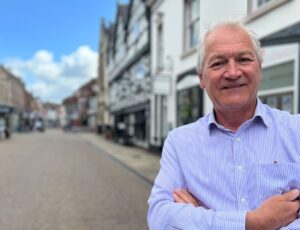
Independent retailers are experiencing a revival in areas where cars have been restricted, according to new evidence revealed in Bira’s latest High Street Matters podcast. The episode shows how low traffic neighbourhoods (LTNs) in London and Birmingham have transformed congested roads into bustling community spaces, with businesses reporting significant shifts in trade patterns.
In Beyond Cars – Creating Vibrant High Streets Through Low Traffic Neighbourhoods, journalist Steve Dyson interviews key figures who have witnessed this transformation firsthand.
Natalie Lindsay, secretary of the Wandsworth Bridge Road Association in London, shares how their community group has changed perceptions of what was once viewed as “just a main road” by highlighting its potential as a high street with 80 shops nearby.
“We’ve developed a vision of a less car-centric and more people-friendly road,” says Lindsay. “What had happened over the years is that over 80% of the cars being driven down this road were not coming to this part of Fulham, they weren’t coming to shop, they were literally just passing through.”
Through initiatives including an annual street fair that attracts 20,000 visitors and the introduction of parklets, the area has been transformed.
“It’s almost felt like somewhere on the continent, with people sitting out on the benches and outside seating,” she continues. “These people are coming and spending money on the High Street because they are hanging out there.”
Though case studies highlight that schemes remain works in progress, the podcast reveals that LTNs can play a crucial role in high street regeneration when properly implemented. Bira CEO Andrew Goodacre emphasises the importance of LTNs for retailers but warned of a common disconnect.
“I think they are important for various reasons, if you think about the need to reduce traffic from an environmental perspective, and then we have the wider issue of creating a different ‘place’. The real danger is that the decision to create a low traffic neighbourhood is often driven without thinking about the businesses, with a focus on just reducing traffic. LTNs can be good for businesses but only if the plan is cohesive, involves local business owners, and is broader than just blocking a few streets.”
The High Street Matters podcast series is available on all major streaming platforms, with new episodes released throughout the year covering various topics relevant to today’s retail landscape. For further information on Bira, please click here.










